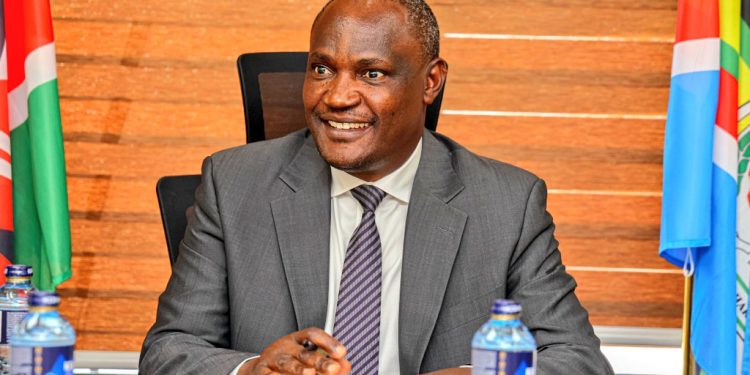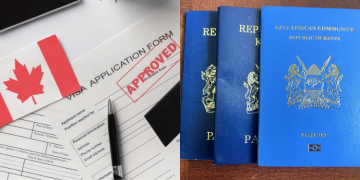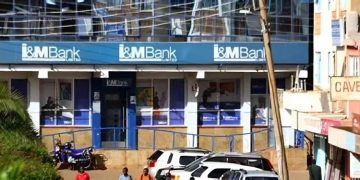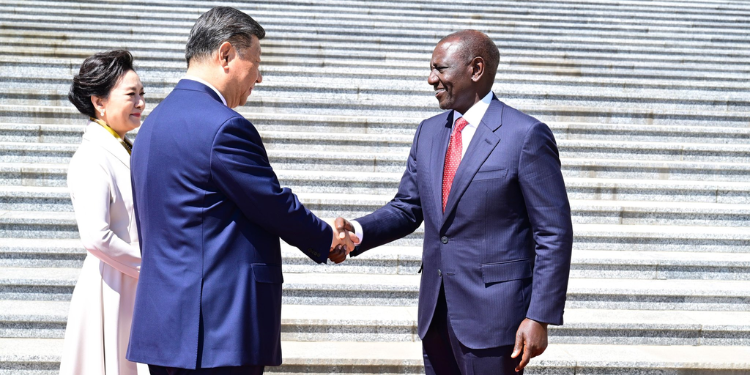Kenya has finalized a currency conversion deal with China for its Standard Gauge Railway (SGR) loans, a move expected to save the country approximately $215 million (Ksh27.79 billion) annually in debt servicing costs.
The announcement was made by Treasury Cabinet Secretary John Mbadi, who confirmed that the government successfully converted part of its Chinese railway debt from U.S. dollars to Chinese yuan (renminbi) following talks with China.
Bloomberg first reported on the bilateral talks on August 20, following an interview in Nairobi with CS Mbadi, who stated that discussions were expected to conclude soon, without elaborating further.
“Presently, our debts are so concentrated in one currency, in dollar terms, especially external debts,” the CS said, as quoted by Bloomberg.
“We are trying to spread that risk by diversifying currencies. That is why we approached the Chinese government to discuss how we could convert some of the debts that are in dollars to renminbi.”
Details of the loan deal between China and Kenya
The conversion is part of a broader strategy to manage external debt risks by diversifying currency exposure. Kenya had borrowed $5 billion (approximately Ksh646 billion) from the Export-Import Bank of China to finance the SGR line connecting the port city of Mombasa to the outskirts of Nairobi.
As of June 2024, about $3.5 billion (approximately Ksh452.375 billion) of that debt remained outstanding, according to the government’s debt register. Kenya currently spends roughly $1 billion (approximately Ksh129.25 billion) annually on servicing its debt obligations to China.
Also Read: Ruto Convenes Urgent Meeting as Mass Firing of Employees Looms
While details on the interest rate and repayment terms of the yuan-denominated loans were not disclosed, CS Mbadi noted that earlier plans to issue a panda bond had been shelved. “The rates are not favourable,” he said, according to Bloomberg.
The currency switch is viewed as part of a broader trend among developing countries to explore the use of the yuan for cheaper financing. Nations such as Hungary and Kazakhstan have issued yuan bonds, and Sri Lanka recently announced a yuan-denominated loan of $500 million for a highway project.
Beyond the yuan conversion, Kenya is also restructuring both domestic and external debt to address upcoming maturity pressures. The government has refinanced three Eurobonds to extend their maturities, though at higher interest rates. Additionally, it is working on a $1 billion debt-for-food swap deal, backed by guarantees from the U.S. International Development Finance Corporation.
Kenya faces significant repayment obligations, needing approximately $26 billion in external debt redemptions over the next decade, alongside around $1.5 billion in annual interest payments. According to Bloomberg, more than half of the country’s tax revenue is currently used for debt servicing.
IMF engagement and new program discussions
The country is also in discussions with the International Monetary Fund (IMF) for a new funded program. An IMF team is in Nairobi, with the mission scheduled to conclude on October 9.
“Engaging with the IMF has benefits, because at times they may sound like a nuisance, but the truth is that you also need someone to continuously engage with you, to look at you and tell you that they think you are losing track, because if you are just self-assessing, you may not know how well or how poorly you are performing,” Mbadi told Bloomberg.
Also Read: How Kenya Raised Ksh193 B Loan, Nationwide IEBC Jobs and US-Africa Trade Deal Expires
The Kenya-China talks come as President William Ruto works to reduce his country’s reliance on traditional foreign borrowing, including the now prohibitively expensive Eurobond market, instead turning to Asian lenders and a diversified bond market.
Meanwhile, Kenya has launched a tender offer to repurchase its entire $1.0 billion (7.25%) Eurobond due 2028, in a move aimed at easing pressure on its external debt profile.
In a press release published on Wednesday, October 2, the government stated that it is offering to buy the notes at a purchase price of $1,037.50 per $1,000 principal amount. This represents 103.75% of the aggregate principal amount, together with accrued interest.
Follow our WhatsApp Channel and join our WhatsApp Group for real-time news updates.










































































